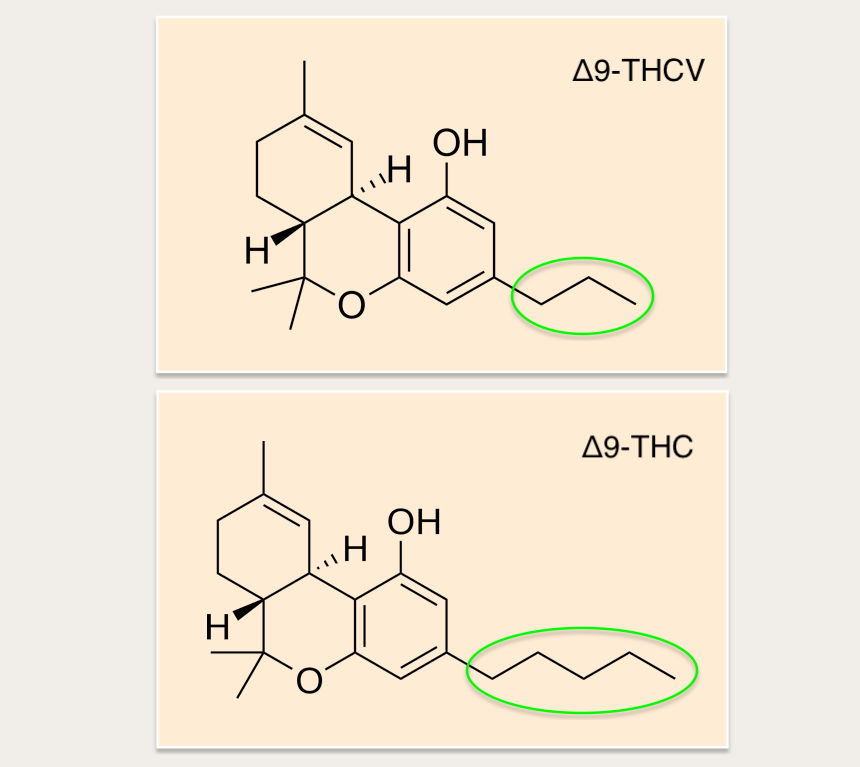Tetrahydrocannabivarin (THCV) is a cannabinoid compound found in marijuana and hemp plants. It's chemically comparable to tetrahydrocannabinol (THC) but with some key distinctions. Here's whatever you require to learn about THCV including the threats, advantages, differences, and resemblances with other kinds of THC and more. What Is THCV? THCV is a less common cannabinoid found in some strains of cannabis, especially African sativa.
 What Is THCV and What Are the Benefits of This Cannabinoid?
What Is THCV and What Are the Benefits of This Cannabinoid?
 What Is THCV (Tetrahydrocannabivarin) And What Does It Do?
What Is THCV (Tetrahydrocannabivarin) And What Does It Do?
 Tetrahydrocannabivarin: What is THCV & It's Effects - Dr. Green Relief
Tetrahydrocannabivarin: What is THCV & It's Effects - Dr. Green Relief
THCV has a 3-carbon side chain instead of THC's 5-carbon side chain. This distinction is subtle, however it has a noticeable effect on the effect profile. THCV is somewhat psychoactive however only about and about. What Does THCV Seem like? THCV has a strong energy-boosting part to it, which makes it specifically popular amongst students and professional athletes.
In the United States, THCV regulation is nuanced. THCV is not a Schedule I Drug, but marijuana extracts are making it somewhat ambiguous what the federal position is on THCV. The 2018 Farm Bill specifies that hemp plants and all derivatives of the plants are legal on a federal level, so numerous business abide by this law and still supply THCV to clients by only extracting the compound from hemp plants.
If THCV is thought about a THC analog, it might be controlled in the future by the very same guidelines as THC under the Federal Analog Act. This act mentions that any compound that shares a comparable molecular profile as a known prohibited compound it's included in the exact same drug Set up classification.
What Are the Impacts of THCV? Advocates of THCV report that it produces an intense burst of energy and makes them feel euphoric without the mental cloudiness triggered by THC. The results are super mild compared to THC. The effects are almost solely cognitive yet somehow have very little effect on headspace.
2. THCV & Hunger Some THCV users claim that it curbs their cravings. This is a common impact of other focus-enhancing substances. It's as though THCV removes the interruption of other physical procedures (like hunger) in order to maintain resources and attention to cognitive jobs instead. How Does THCV Work? Cannabinoids produce biological effects in the human body by communicating with endocannabinoid receptors.
CB1 receptors lie in the nervous system and communicate with neurotransmitters in the brain to produce mind-altering results. Interaction with CB1 websites is what gives some cannabinoids like THC their psychoactivity. THCV is a bit challenging to understand because it's primarily a CB1 villain, meaning it has the opposite effect as THC.
While scientists are still looking for to comprehend this procedure, it appears THCV has the ability to obstruct the impacts of CB1 in low dosages and promote them in high doses. CB2 receptors are discovered mostly in the immune system. THCV is a partial agonist of CB2, however the impacts of this partial activity aren't widely known, and it relatively has no noticeable effect on THCV users' experience.
As mentioned in the previous section, THCV is a CB1 antagonist in low dosages which is the exact opposite result of delta 8 and delta 9 THC. This might suggest that THCV combats a few of the psychedelic effects of THC. This impact could describe why people who use THCV feel so clear-headed particularly compared to the well-known "fogginess" caused by delta 9 THC.